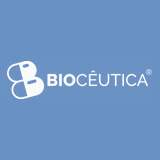Vitamin B12, also known as cobalamin, is one of the eight essential B vitamins. It plays a crucial role in various bodily functions, making it a key player in maintaining a vibrant mind and body. As a water-soluble vitamin, B12 is vital for nucleic acid synthesis, energy production, and the health of both red blood cells and nerve cells. This article delves into the significance of Vitamin B12, its sources, health benefits, and the consequences of deficiency, while also addressing some frequently asked questions.
Understanding Vitamin B12
Vitamin B12 is unique among the B vitamins due to its complex structure, which includes a cobalt atom at its core. It is essential for several critical processes in the body:
-
Red Blood Cell Formation: B12 is involved in the synthesis of DNA during the formation of red blood cells. A deficiency can lead to anemia, characterized by fatigue and weakness.
-
Nervous System Health: This vitamin is crucial for maintaining the health of the myelin sheath, the protective covering that surrounds nerve fibers. Proper myelination is essential for effective nerve signal transmission.
-
Energy Production: Vitamin B12 plays a critical role in the metabolism of carbohydrates and fats, facilitating energy production necessary for daily activities.
-
Mental Health: Research suggests a link between B12 and mental health, with adequate levels being associated with reduced risks of depression and cognitive decline.
- Homocysteine Regulation: B12 helps to convert homocysteine into methionine, thereby reducing levels of this amino acid in the blood, which is associated with cardiovascular diseases when elevated.
Sources of Vitamin B12
Vitamin B12 is primarily found in animal-derived foods. Here are some of the best dietary sources:
-
Meat and Poultry: Beef, lamb, and chicken are excellent sources of B12. Organ meats, particularly liver, are exceptionally rich in this nutrient.
-
Fish and Seafood: Fish like salmon, trout, sardines, and tuna, as well as shellfish such as clams and oysters, are also abundant in B12.
-
Dairy Products: Milk, yogurt, and cheeses provide good amounts of Vitamin B12, making them beneficial for vegetarians who consume these products.
-
Eggs: Eggs, particularly the yolks, are another source of Vitamin B12 for those who include them in their diet.
-
Fortified Foods: For vegans and vegetarians, certain fortified foods, such as breakfast cereals and plant-based milk alternatives, can be valuable sources of Vitamin B12.
- Supplements: B12 supplements are available in various forms, including tablets, sublingual (dissolved under the tongue), and injections. These can be crucial for individuals who are unable to absorb the vitamin through diet alone.
Health Benefits of Vitamin B12
1. Promotes Energy Production
Vitamin B12 is vital in converting food into glucose, which fuels our cells and provides energy. A deficiency can lead to fatigue, weakness, and lethargy, impacting daily productivity and overall quality of life.
2. Enhances Mood and Mental Clarity
B12 significantly influences mood regulation and cognitive function. Low levels have been linked to an increased risk of depression and mood disorders. Adequate B12 levels are essential for producing neurotransmitters like serotonin, which regulates mood and emotional well-being.
3. Supports Brain Health
B12 is instrumental in maintaining brain health and preventing cognitive decline. Studies have shown that individuals with higher B12 levels have better cognitive function and a lower risk of dementia. Additionally, it plays a role in reducing brain atrophy associated with aging.
4. Aids in Cardiovascular Health
By reducing homocysteine levels, Vitamin B12 contributes to heart health. Elevated homocysteine is a risk factor for cardiovascular diseases, and sufficient B12 intake can help mitigate this risk, promoting overall cardiovascular health.
5. Boosts Immune System Function
Vitamin B12 supports the immune system by promoting the health of immune cells and aiding in the synthesis of DNA, which is crucial for the production of new cells, including those needed for a robust immune response.
6. Reduces Risk of Osteoporosis
Some studies suggest that a deficiency in Vitamin B12 may be linked to inflammation and the reduction of bone density. Ensuring adequate B12 intake may help maintain bone health and reduce the risk of osteoporosis.
Consequences of Vitamin B12 Deficiency
Despite its importance, Vitamin B12 deficiency is relatively common, especially among certain populations. The deficiency can arise from inadequate dietary intake, malabsorption issues, or certain health conditions.
Symptoms of Deficiency
-
Fatigue and Weakness: Due to anemia resulting from impaired red blood cell production.
-
Neurological Issues: Symptoms may include tingling and numbness in extremities, difficulty walking, and memory loss.
-
Mood Changes: Increased risk of depression, anxiety, and cognitive decline.
-
Glossitis and Mouth Ulcers: Inflammation of the tongue and sores in the mouth.
- Vision Problems: Due to damage to the optic nerve, which can lead to vision impairments if not treated.
At-Risk Populations
Several groups are particularly at risk for Vitamin B12 deficiency:
-
Vegans and Strict Vegetarians: As B12 is primarily found in animal products, those following a plant-based diet need to ensure they obtain sufficient B12 from fortified foods or supplements.
-
Older Adults: Aging can impair the body’s ability to absorb B12 due to decreased stomach acid production or other gastrointestinal issues.
-
Individuals with Malabsorption Disorders: Conditions like celiac disease and inflammatory bowel disease can hinder B12 absorption.
- People Taking Certain Medications: Some medications can interfere with B12 absorption, such as metformin for diabetes and proton pump inhibitors for acid reflux.
How to Maintain Adequate Vitamin B12 Levels
1. Dietary Choices
Incorporate a variety of B12-rich foods, particularly if you consume animal products. If you follow a vegetarian or vegan diet, seek fortified options or consider taking supplements.
2. Regular Health Check-Ups
Individuals, especially older adults or those with chronic health conditions, should have their Vitamin B12 levels checked regularly through blood tests.
3. Awareness of Symptoms
Stay attuned to any symptoms that may indicate a deficiency, such as fatigue, changes in mood, or cognitive issues, and consult a healthcare professional promptly if these appear.
4. Supplementation
If dietary intake is inadequate or absorption is compromised, consider B12 supplements after discussing with a healthcare provider.
FAQs about Vitamin B12
Q1: What is Vitamin B12’s role in the body?
Vitamin B12 is essential for red blood cell formation, nerve health, energy production, and DNA synthesis. It also plays a crucial role in mental health and reducing levels of homocysteine, thus supporting cardiovascular health.
Q2: What are the symptoms of Vitamin B12 deficiency?
Symptoms include fatigue, weakness, neurological issues (such as tingling or numbness), mood changes, and mouth ulcers. Long-term deficiency can lead to cognitive decline and anemia.
Q3: Who is at risk for Vitamin B12 deficiency?
Vegans and vegetarians, older adults, individuals with gastrointestinal malabsorption issues, and those taking certain medications are at higher risk for deficiency.
Q4: What are the best dietary sources of Vitamin B12?
The best sources include animal products such as meat, poultry, fish, dairy, and eggs. Fortified foods and supplements are also viable options for those on plant-based diets.
Q5: How can I ensure I am getting enough Vitamin B12?
Incorporate a variety of B12-rich foods into your diet, especially if you consume animal products. For those at risk of deficiency, consider fortified foods or supplements, and consult with a healthcare provider for tailored advice.
Q6: Can I get enough Vitamin B12 from a plant-based diet?
It can be challenging to get enough Vitamin B12 from a strictly plant-based diet. Vegetarians may obtain some B12 from dairy and eggs, while vegans should rely on fortified foods or supplements to meet their requirements.
Q7: How is Vitamin B12 absorbed in the body?
Vitamin B12 absorption involves stomach acid and intrinsic factor, a protein produced in the stomach. The vitamin binds to intrinsic factor, allowing it to be absorbed in the small intestine.
Q8: Is it safe to take Vitamin B12 supplements?
Generally, B12 supplements are considered safe, even at higher doses, as excess amounts are excreted in urine. However, consult with a healthcare provider before starting any supplementation, especially if you have underlying health conditions.
Conclusion
Vitamin B12 is an essential nutrient that plays a significant role in ensuring a vibrant mind and body. Its influence on energy production, neurological health, and mood regulation makes it indispensable for overall well-being. Understanding its sources, benefits, and the risks associated with deficiency is crucial for maintaining optimal health. By paying attention to dietary intake and consulting healthcare providers when necessary, individuals can ensure adequate levels of Vitamin B12 for a healthy, active life.
Sure! Please provide me with the article title or the specific topic you’d like me to write about, and I’ll be happy to help!




